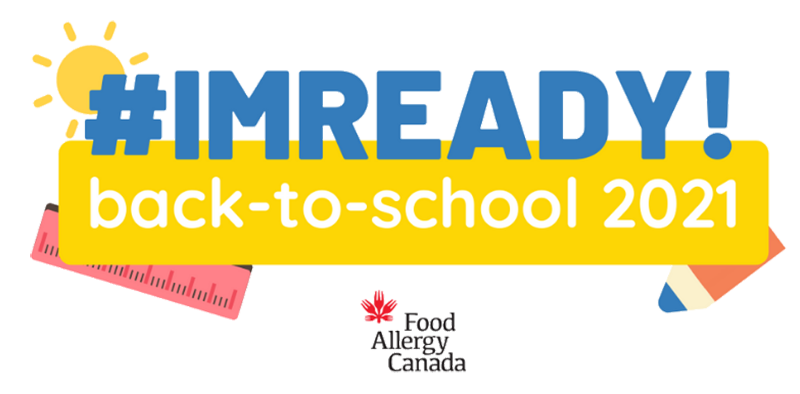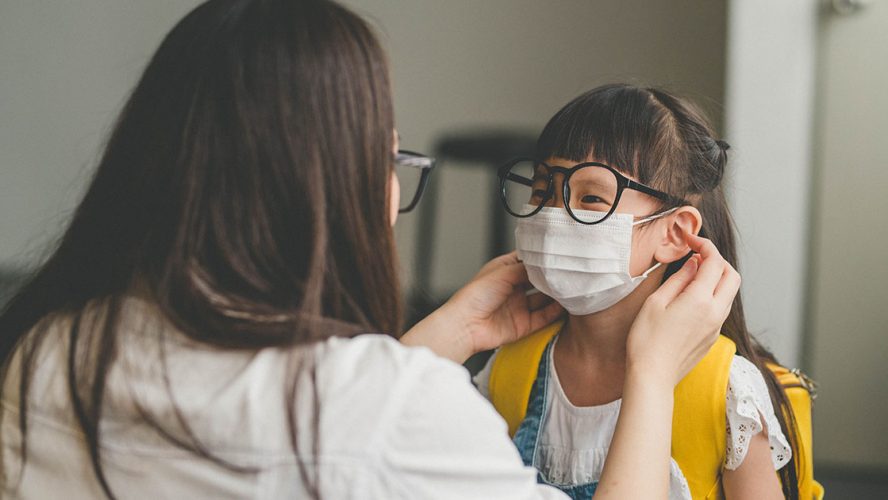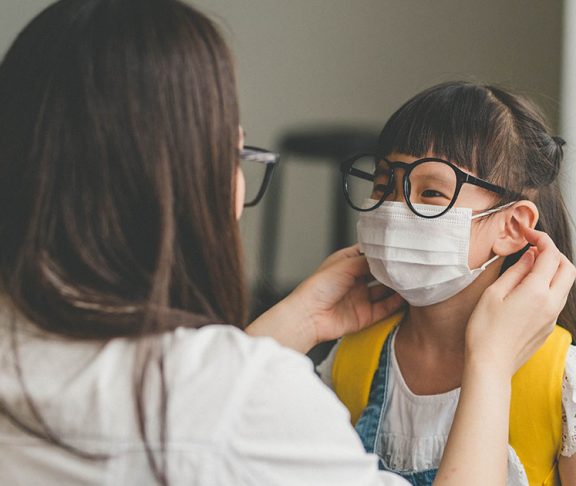
Beatrice Povolo
Director, Advocacy & Media Relation, Food Allergy Canada
With the fourth wave of the pandemic upon us and with children under 12 not yet eligible for vaccination, there may be questions about this school year, like what safety precautions will be taken and how they will be followed. If your child has a food allergy, you’re also thinking about how this ongoing pandemic impacts the way it’ll be managed at school.
Although the pandemic continues to create challenges in our everyday lives, those with food allergy may benefit from some of the added safety measures being implemented, such as the increased focus on hygiene for everyone, which includes:
Washing hands with soap and water before and after eating
Not sharing food/drinks, straws, utensils, and food containers with others
Cleaning and disinfecting surfaces like desks and tables
While schools are continuing with measures to limit the spread of COVID-19 amongst students and staff, the following tips can further help you and your child manage food allergy at school.
Getting ready
While the pandemic has affected some behaviours, you can still plan on managing your child’s food allergy in the same ways as previous years, for example:
- Review your school’s policies on food allergy and anaphylaxis management, along with provincial requirements
- Complete all the necessary paperwork, like the Anaphylaxis Emergency Plan
- Have at least one in-date epinephrine auto-injector (EpiPen®, ALLERJECT®, Emerade™) for your child and/or the school
- Talk to your child’s teachers about your child’s food allergy, as needed
- Suggest the staff stay informed and educated on anaphylaxis by taking an AllergyAware.ca course

Mask wearing
If masks are to be worn by students, have your child practice at home so it can become part of their routine, just like carrying their epinephrine auto-injector when they’re mature enough to do so and wearing medical identification like MedicAlert®.
Since masks may cover up skin symptoms on the face during an anaphylactic reaction, have a discussion with your child about the signs and symptoms in an age-appropriate way. They should know to tell an adult if they start to feel unwell at school.
School preparedness
Go over how your child can manage their food allergy at school, including key safety rules. For instance, remind them to stick with what’s in their lunch bag or food that has been approved by you, not to share or swap food with others, and to bring allergy-friendly food on outings and wipes to clean surfaces. This year it may be easier to follow these rules due to the COVID-19 safety measures already in place.
Is your child a new or returning post-secondary student? If they are living in residence and eating in dining halls, they can contact their institution to learn about the health and safety guidelines in place. Plus, they can follow our tips on going to post-secondary school, watch one of our webinars on this topic, and view a video on living with roommates when you have a food allergy.
Helpful resources
- COVID-19 vaccines for children and teens: Watch a recorded webinar featuring a panel of experts to get your questions answered on COVID-19 vaccines for children and teens. Find out about the approved vaccine options and recommended ages, and what to consider if your child/teen has a food allergy and the recommendations for going back to school
- Webinar: What’s it like to go to middle school and high school with food allergy in which members of Food Allergy Canada’s Youth Advisory Panel discuss their experiences managing food allergy at school
- Back-to-school food allergy checklist: Review this checklist, the tips continue to apply for kids who are starting school for the first time or are returning students
- Planning for post-secondary checklist: Read this checklist, it has tips for helping post-secondary students manage food allergy on campus
Food Allergy Canada focuses on helping the over 3 million Canadians impacted by food allergy live better by providing education and support, building informed communities, and acting as the national voice on key issues. Visit foodallergycanada.ca/backtoschool2021 for more tips and helpful resources.


